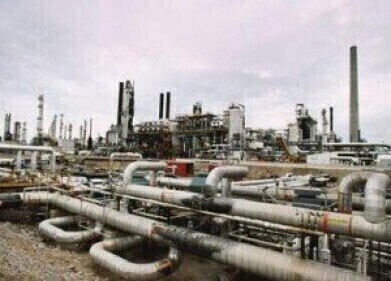Methanol fuel
Which countries lead in methanol fuel production?
Oct 25 2023
As the global community steers towards sustainable energy, methanol is carving an indispensable niche in this green transition. Nations are recognizing its potential, not just as a clean-burning alternative fuel but also as a key player in diminishing the carbon footprint of numerous industries, including the mammoth international shipping sector. Understanding which countries are pioneering this movement provides insight into the future of energy consumption and environmental preservation.
The introduction of the world’s first methanol-powered container ship marks a pivotal moment in modern maritime history. This groundbreaking event took place at the Port of Felixstowe, the UK’s maritime hub, with the docking of the Laura Maersk. It wasn't just another vessel anchoring; it symbolized a bold step towards environmentally conscious shipping, offering a promising solution to the industry's substantial greenhouse gas emissions, which account for approximately 3% of global totals.
Originating from Denmark, the Laura Maersk’s debut highlights a critical advancement in fuel technology. The ship operates on methanol, a biodegradable, clean-burning substance, signaling a remarkable reduction in pollution and environmental impact compared to conventional fuels. This development isn't a standalone effort; it reflects a broader commitment by companies like Maersk, a giant in logistics and transportation, which has vocalized its strategy to achieve net-zero emissions by 2040. Such initiatives underscore the growing momentum in the industry to mitigate climate change repercussions.
This shift isn't limited to shipping. The methanol market, as of 2021, exhibited robust growth, expected to burgeon from a valuation of $37.4 billion to approximately $61.7 billion by 2030. This expansion isn't uniform, though; specific nations are distinctively contributing to the surge. Saudi Arabia, renowned for its oil reserves, surprisingly leads in methanol exports, followed closely by the United States and the Netherlands. Import patterns reveal an increased demand in countries like China, the United States, India, and again, the Netherlands.
These trends prompt the question: what drives the escalating interest and investment in methanol? The substance’s versatility is a prime factor. Beyond its newfound role in shipping, methanol is crucial in manufacturing plastics, paints, and other synthetic materials. Its potential as a substitute for gasoline in vehicles, given its cleaner-burning properties, marks it as a significant contender in the race towards sustainable energy sources.
However, environmental advocates caution against premature celebration. Methanol, while less polluting, is not without its risks and challenges. It’s flammable and toxic, necessitating careful handling and storage. More importantly, for methanol to be genuinely sustainable, its production must lean away from non-renewable sources. Currently, the substance is often associated with fossil fuels, but there’s growing advocacy for its manufacture using renewable resources, such as biomass or captured carbon dioxide, which could dramatically reduce its overall environmental impact.
China’s strategy provides a case study in methanol’s complex dynamics. The country is aggressively pursuing methanol fuel, drawn by its domestic abundance and lower production costs. However, there’s an environmental paradox; the majority of Chinese methanol derives from coal, a significant pollutant. Despite this, strides are being made towards sustainability, exemplified by projects like the commercial-scale CO2-to-methanol plant in Henan Province. By capturing carbon emissions from industries, this venture aligns with global low-carbon initiatives, highlighting the dualistic nature of methanol as both a potential pollutant and a solution.
The global perspective on methanol is evolving. Its role in the energy sector, particularly in transportation, is expanding, backed by empirical successes and governmental support. In China, policies encouraging methanol use in local transport have spurred the proliferation of methanol-fueled cars and refueling stations. Similar trends are observable worldwide, with countries like Israel, Egypt, India, Italy, New Zealand, and Trinidad exploring methanol’s incorporation into their energy strategies.
The maritime industry’s interest is particularly noteworthy, considering the sector’s notorious pollution levels. Methanol’s viability as a cleaner alternative could revolutionize marine transport, aligning it with global emission reduction targets. Yet, this optimistic scenario hinges on a critical shift in methanol production methods. The current reliance on fossil fuels undermines the compound’s green potential; transitioning to renewable sources is non-negotiable for its ecological credibility.
Investments in carbon capture and sustainable production methods are gaining traction, indicating a positive trajectory. Nonetheless, challenges persist. The sustainability of large-scale biomass use, competition for resources, and the energy-intensive nature of current carbon capture technologies are hurdles to overcome.
As the 2030 horizon for many international environmental targets approaches, the trajectory of methanol fuel as a green alternative appears promising yet fraught with complexities. The global market, while expanding, must navigate these intricacies and innovate continuously to ensure that methanol contributes genuinely to a sustainable future, rather than offering a veneer of environmentalism.
In conclusion, while countries like Saudi Arabia, the U.S., and the Netherlands lead in methanol production and export, the true leaders in this green transition will be those that pioneer its sustainable production and use. Stakeholders worldwide must collaborate, innovating beyond narrow economic interests towards the collective goal of environmental preservation. The docking of the Laura Maersk symbolizes a beginning, an initial steer towards cleaner horizons, with the real journey lying ahead.
Digital Edition
PIN 26.1 Feb/Mar 2025
March 2025
Analytical Instrumentation - Elemental Analysis for Quality and Process Control at Refineries, for Lubricants and Wear Metals in Engine Oils - Synthetic Lubricants: New Developments - Scaling...
View all digital editions
Events
Apr 22 2025 Hammamet, Tunisia
Apr 22 2025 Kintex, South Korea
Solar & Energy Storage Summit 2025
Apr 23 2025 Denver, CO, USA
Apr 27 2025 Portland, OR, USA
Apr 29 2025 Mumbai, India



















